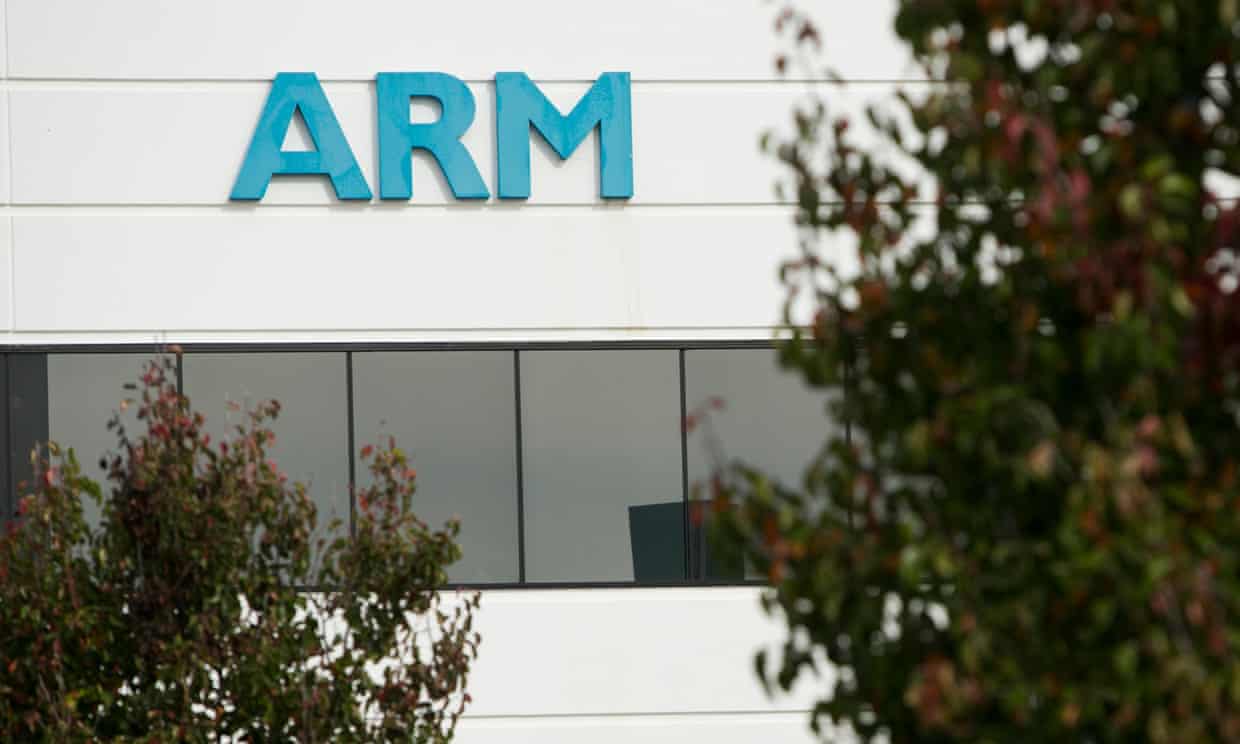
Nils Pratley on finance
Arm's sale to Nvidia makes sense but we need binding guarantees
The US graphics firm is a better fit for the Cambridge-based chip-maker than the profligate Softbank
by Nils PratleyThe tragedy of Arm Holdings is that it was sold to Softbank of Japan in the first place. The £24bn cash takeover in 2016 was an example of the UK’s free-and-easy approach to mergers and acquisitions at its unimaginative worst.
Timid fund managers preferred to bank a quick 40% profit on the previous share price, rather than take a punt that Arm, in publicly listed independent form, could multiply in value over a couple of decades in a tech world where success is never guaranteed but the rewards can be enormous.
And the whole process was nodded through by panicked UK ministers who parroted the lines that Masayoshi Son, Softbank’s deal-making founder, fed them: that the purchase of Arm was somehow a case of “backing Brexit Britain”. It was nothing of the sort. Son was backing Arm’s excellent technology in the safe knowledge that the business could always be flipped one day to a new owner.
That moment has arrived. Softbank, carrying too much debt, is in a mess. Ludicrous punts on WeWork and others have dented Son’s reputation with his own shareholders. Selling Arm is now seen as a way to clear the decks.
In theory, Nvidia ought to be a far more stable owner of Arm than Softbank. The US company has its origins in semiconductor chips for graphics used in computer games but is now deep in the world of chips for machine learning. There is an obvious convergence with Arm’s advances in artificial intelligence. Unlike the fidgety Softbank, Nvidia has fewer distractions.
The obvious challenge, however, is that Arm is being bought by one of its own customers, which may upset other customers. Arm’s famous neutrality, via which it licenses its chips to one and all, is in doubt. Jensen Huang, Nvidia’s chief executive, thinks the problem doesn’t really exist and that Arm’s business model can continue unchanged, but his thesis is yet to be tested.
That’s the risk in the deal, and also the risk to the promise of oodles of investment in Arm’s headquarters in Cambridge. If Huang’s grand vision doesn’t work out, what’s plan B? Would Arm’s human brainpower be hauled across the Atlantic to be deployed at Nvidia’s California base? Would Arm be left as an unloved foreign outpost?
Those are the questions the UK government should be asking as it tries to extract a few benefits for the country. Ministers’ clout is limited (objections based on defence threats would be laughed out of court in Washington) but the UK can demand that Nvidia turns its currently airy good intentions into legally binding commitments.
A “global centre of excellence in AI research” in the Fens, complete with “Arm-powered supercomputer”, sounds attractively 21st century but let’s hear the sums and the timetable for delivery.
If Nvidia can provide solid guarantees, this deal does not have to be the “absolute disaster” for the UK feared by Hermann Hauser, Arm’s co-founder. It could easily be an upgrade on ownership by Softbank, which is why calls to block the deal are a little odd. But Hauser is right that commitments are “meaningless unless they are legally enforceable”.
A perfect outcome, unfortunately, is now impossible. It would have been an independent Arm making some of the same AI chip innovations under its own steam. Blame the 2016 shareholders, and blame the UK’s shocking inability to think big in tech.
The latter, by the way, will not be solved by letting Dominic Cummings have a £400m flutter with public money on bankrupt satellite broadband companies. A proper industrial strategy for tech is still required, with checks, balances and parameters. In the meantime, the job is about making Nvidia’s investment pledges 100% solid.
G4S merits a pre-pandemic price
Here’s a takeover proposal we probably care less about: GardaWorld of Canada wants to buy G4S, the security firm whose public reputation has never recovered from failures at the London Olympics in 2012 and various scandals with government contracts.
Let ’em have it for £3bn might be one response. Yet if GardaWorld – or, rather, its controlling private equity owner, BC Partners – really wants this deal, it’ll have to offer more than the proposed 190p a share.
True, that offers a headline premium of 31% for G4S shareholders but valuing most businesses mid-pandemic is hard. Back in January, G4S stood at 215p. The board cannot honourably sell for less, and should aim for more. Saying no to 190p was the right response. If BC is serious, it’ll be back with a proper offer.